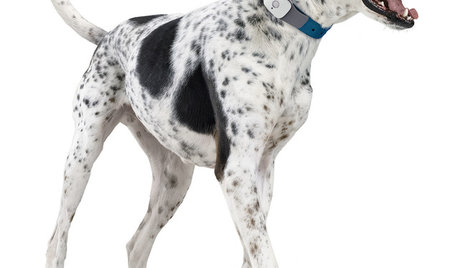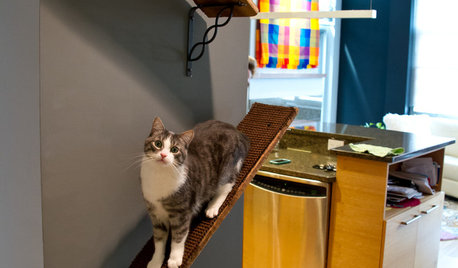How does feline CRF progress?
quasifish
16 years ago
Related Stories

PETSSee a Deluxe 'Catio' Built for Feline Fun
Sixteen lucky cats get the run of a protected outdoor patio with ramps, steps and even a koi pond
Full Story
PETSHouzz Call: Send in the Design Cats
Post your best photo of your cat at home, in the garden or with you in your studio. It could be published in a featured ideabook
Full Story
DECORATING GUIDES23 Ways to Put Your Home in Hipster City
Be one of the cool kids no matter what your age, with these tips for giving your home a creative, colorful or edgy vibe
Full Story
HOME TECHFacebook Meets Fido: Pet Connections for the Digital Age
Three new products let you communicate with your dog or cat while you're at work
Full Story
BUDGET DECORATINGDumpster Decorating: Furnishing Your Home With Repurposed Pieces
Whether you call them reclaimed or recycled, these furnishings honor our pocketbooks and our planet
Full Story
GARDENING FOR BIRDSWild Birds Transform a Woman’s Garden and Life
How Sharon Sorenson created a wildlife haven and became the Bird Lady of Southern Indiana
Full Story
PETSUpload of the Day: Catwalks Keep Pets Happy in a Candy-Colored Condo
Shelves and wall-mounted boxes keep 2 cats active and entertained while their guardian is at work making jelly beans
Full Story
PETSThe Best of My Houzz: 50 Design-Loving Pets
Share in the animal love with snapshots of adorable furry friends from our My Houzz series
Full Story
LIFEYou Said It: “Call It the ‘Really Useful Stuff’ Drawer” and More
Houzz design advice, inspiration and observations that struck a chord this week
Full Story



laurief_gw
quasifishOriginal Author
Related Discussions
is CRF considered feed and forget?
Q
CRF and dormancy
Q
Feline CRF sub-Q fluids & needle size- advice?
Q
Question Re Giving Feline IV's
Q
laurief_gw
Meghane
irislover7b
socks
bluesbarby
quasifishOriginal Author
laurief_gw
irislover7b
quasifishOriginal Author
ritamay91710
laurief_gw
quasifishOriginal Author